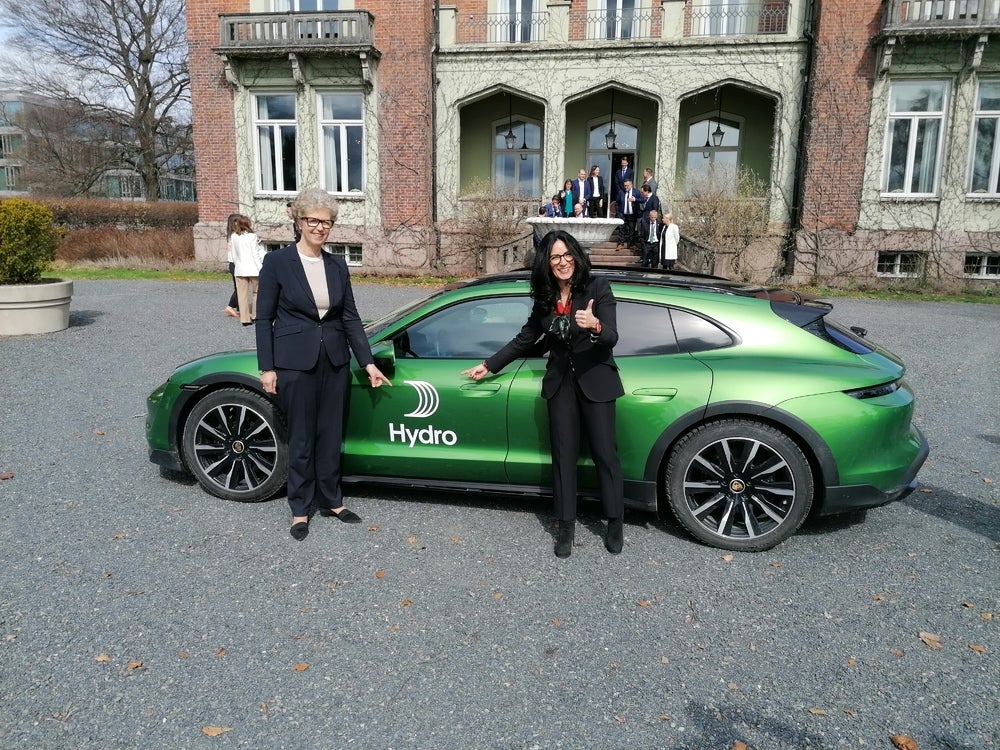
Porsche said it would further reduce the carbon footprint of its cars by using Norsk Hydro low carbon aluminium and extrusions.
The two would also collaborate on an innovative value chain concept for battery materials and recycling. They signed an agreement in Oslo to bolster to the sustainability strategy of both companies.
Hydro will supply Porsche and its other suppliers low carbon aluminium called Hydro Reduxa 4.0 and lower. This primary aluminium alloy is claimed to have one of the lowest CO2 footprints on the market today and is produced with renewable energy.
CO2 footprint covers the emissions from mine to the metal. By 2025 Hydro will enable Porsche to reduce the footprint to around 3.5kg of CO2 per kg of aluminium used. This is about 60% lower than the average primary aluminium used in Europe currently.
Due to its superior properties in pliability, light weight and strength, the ratio of aluminium in Porsche cars has been increasing steadily – it now constitutes around 30% of the total weight of the Taycan electric sports car.
Hydro aims to supply Porsche and its component suppliers with aluminium targeting CO₂-neutrality in 2030. It will do this by increasing the use of renewable energy in aluminium production and recycling post consumer scrap to increase circularity.
The two companies are also working on proof of concept for building a sustainable battery value chain in Europe and will cooperate in the development of a roadmap to recycle battery materials.
One key element will be to investigate how to build efficient closed loop solutions for EV batteries.
The European supply chain for materials vital for battery production is still in its early stage. Recycling is expected to play a crucial part in meeting the rising demand for batteries in the future. Both companies expect the first feasibility results of joint battery recycling in 2025.






